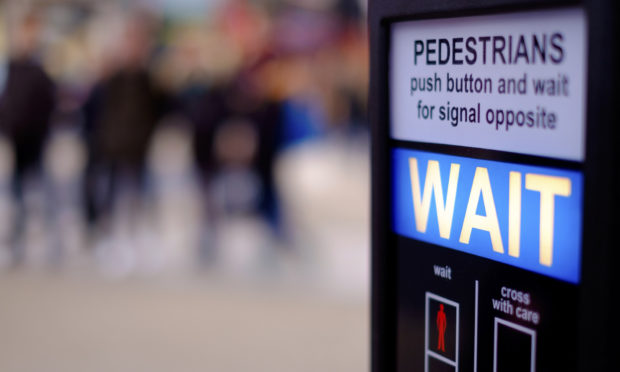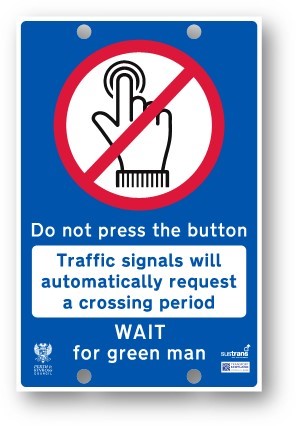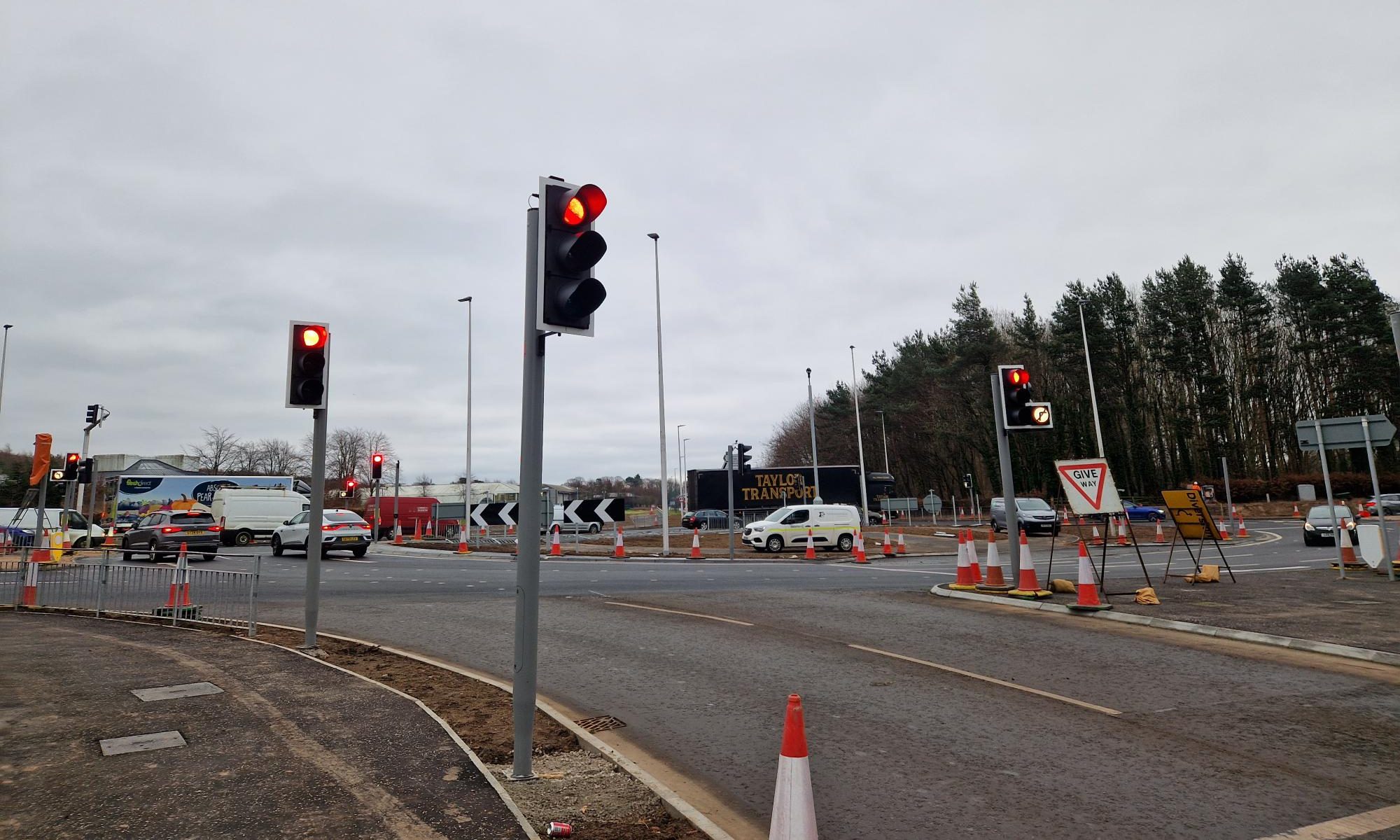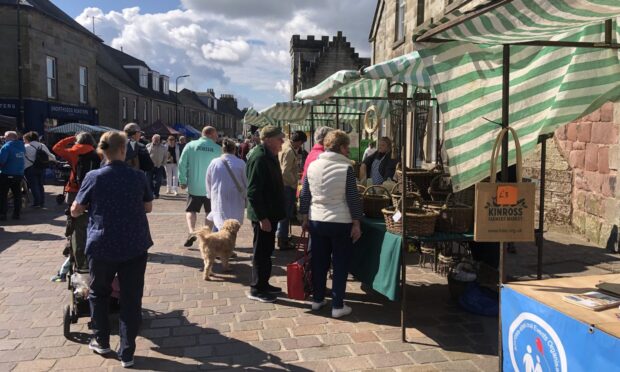Pedestrians will be told “do not press the button” at crossings across Perth and Kinross in an effort to slow the spread of coronavirus.
The new warning signs are part of a radical overhaul of crossings and traffic lights which the local authority believes can reduce the risk of cross-contamination.
The initiative – believed to be one of the first of its kind in Britain – will see hands-free devices fitted at crossings throughout the region.
Detectors will be set up at existing pedestrian crossings to identify when someone is waiting to cross. The green man light will then appear automatically, without the need to touch any controls.
Traffic signals will also be re-calibrated to ensure an automatic pedestrian phase, meaning they will be set to turn red even if there’s no one waiting to cross.
It is part of a £1.1 million plan to make streets safer as lockdown restrictions ease.
Perth and Kinross Council’s bid for Sustrans’ Spaces for People initiative was approved last week.
The redesign, which began on Monday, has been praised by politicians and residents.
Environment convener Angus Forbes said: “This is an excellent initiative. As people gradually return to normal, simple things like pushing a button for a green man will be more considered.
“As technology improves, I am sure sensors will be used far more to detect people at crossings in the same way they are used to detect cars approaching.”
The work was welcomed by sight loss campaigner Jonathan Attenborough, who led a campaign for improved road safety on Mill Street.
“I think it’s great that Perth and Kinross are prioritising pedestrians within the city centre,” he said. “Given the current Covid-19 pandemic, automated crossings will be crucial to help prevent the spread of coronavirus or indeed any other infectious diseases.”
Mr Attenborough said it was vital that audible crossing signals were retained.
Vision PK, the operating name for the Perth and Kinross Society for the Blind, helped plan the redesign.
Client services manager Gill Sutherland said: “Meeting the very wide ranging needs of people living with sight loss is challenging.
“However, we welcome any steps to reduce the risks of cross-contamination and are reassured that the audible signal will remain in place.
“Everyone needs to be made aware of the changes.”
Mid-Scotland and Fife MSP Murdo Fraser said the initiative was a “great idea”.
“Residents will be rightly anxious when about to use a pedestrian crossing due to having to press a button, but this scheme takes away that concern.
The danger posed by pedestrian crossings was recently highlighted by a top virologist.
Chris Smith, who works at Cambridge University’s department of pathology said: “If soneone has coronavirus on their fingers when they press the button, they could deposit virus particles there, which could remain viable for long enough to infect the next person who touches the surface.”











